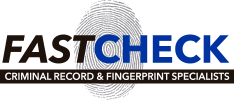
Cannabis is legal in Canada, but with legalization came rules. The cannabis industry is heavily regulated – this includes limits on how cannabis and cannabis products can be advertised, the amount of cannabis that can be purchased and carried, how much cannabis can be grown and where, and who is allowed to fulfill specific roles in the cannabis industry.
This article focuses on the last point. To qualify for certain positions in the cannabis industry, individuals must obtain a security clearance. Over the course of this article, we’ll analyze why security clearances must be obtained, what positions they’re required for, the process for applying for a security clearance, and how fingerprinting plays a part in the whole story.
There’s a lot of information to cover, but before we dive in, there’s something important to keep in mind. We are a third party, providing details about a process regulated by Health Canada. They are the final word on security clearances, and questions about the process should be referred to them. We’ve kept the information here accurate to the best of our abilities, but nothing will be as up-to-date as the information provided by Health Canada. Should you have any questions, contact them, or visit their page on Cannabis Security Clearances for more information.
Why are security clearances necessary for cannabis careers?
According to the Government of Canada, cannabis regulation legalization has 3 goals: Protecting children, protecting the health and safety of adults, and preventing criminals from profiting off of cannabis sales. Security clearances tie into the final goal: Stopping organized crime from entering into the legitimate cannabis industry.
Not every position in the cannabis industry presents a security risk, so not every job will require a security clearance (SC) – we’ll discuss this in greater detail in the next section. In brief, only important stakeholders are required to have clearance, and individuals working at retail outlets in customer service positions are unlikely to need a security clearance.
All in all, the goal of requiring clearance is laudable – to keep crime out of a now-legal industry. It does, however, mean some time and effort are required on behalf of key stakeholders in the cannabis industry.
Who needs a security clearance for their cannabis career?
To better understand who needs clearance for positions in the cannabis industry, we highly recommend reading the page on Cannabis Security Clearances we linked above. According to that page, to determine who needs a SC, you need to determine who has direct control over the company. This might include directors, C-suite officials, and certain key investors.
Key employees may also need a SC. Who will need a clearance depends on the type of growing licence the operation has. Knowing who needs a SC can be somewhat complex, so we’ve included a chart taken from the Cannabis Security Clearances web page to give you a better idea of when SCs are required. Note that this article is being written in March of 2022 – things may have changed if you’re reading after that point in time.
This means that most employees in the cannabis industry will not need a SC. Health Canada recommends that any individual who is not certain of whether or not they need a SC, contact them directly.
Now that you know who might need a SC, let’s take a closer look at the process.
Obtaining a security clearance in the cannabis industry
The process for obtaining a security clearance is relatively involved. To get full details on the process, we recommend reading the Steps to apply: Cannabis security clearance page by the Government of Canada. You’ll need to include a lot of information in your request for a security clearance, including information about:
- Where you’ve lived in the past 5 years
- Information about your immigration to Canada (if applicable)
- Information about spouses/common-law partners you’ve had in the last 5 years
- Countries you’ve visited in the last 5 years
The above is not an exhaustive list – we highly recommend reading the steps to apply page linked above.
You’ll also need to provide information about convictions you’ve had under the Cannabis Act, Controlled Drugs and Substances Act (CDSA), and Criminal Code. You’ll also be required to provide any convictions that occurred in foreign countries. You may also be asked to include police certificates from those countries.
Another key component of obtaining a SC is a criminal record check, for which you’ll need fingerprinting services. On the Government of Canada page we linked above, you can see the full details of what’s required during the fingerprinting process. FASTCHECK can provide the necessary fingerprinting services for background checks in Winnipeg, including those required for cannabis-related SCs.
Note that a conviction or standing criminal record will not necessarily prevent a person from obtaining a SC. These decisions are solely at the discretion of Health Canada and are evaluated on a case-by-case basis.
The fingerprinting process for cannabis security clearances
Fingerprinting for cannabis SCs is the same as the process for most private employment criminal record checks. The fingerprinting process itself only takes about 10 minutes. Be sure to book an appointment in advance to ensure that it will take as little time as possible. You should also follow the instructions outlined in the Steps to apply: Cannabis security clearance page, and inform the fingerprinting service you’re using that you’re applying for a cannabis SC. You must use an accredited fingerprinting service like FASTCHECK.
We hope this article has helped to clarify what’s required for obtaining security clearances for the cannabis industry and why they’re required.

Recent Comments